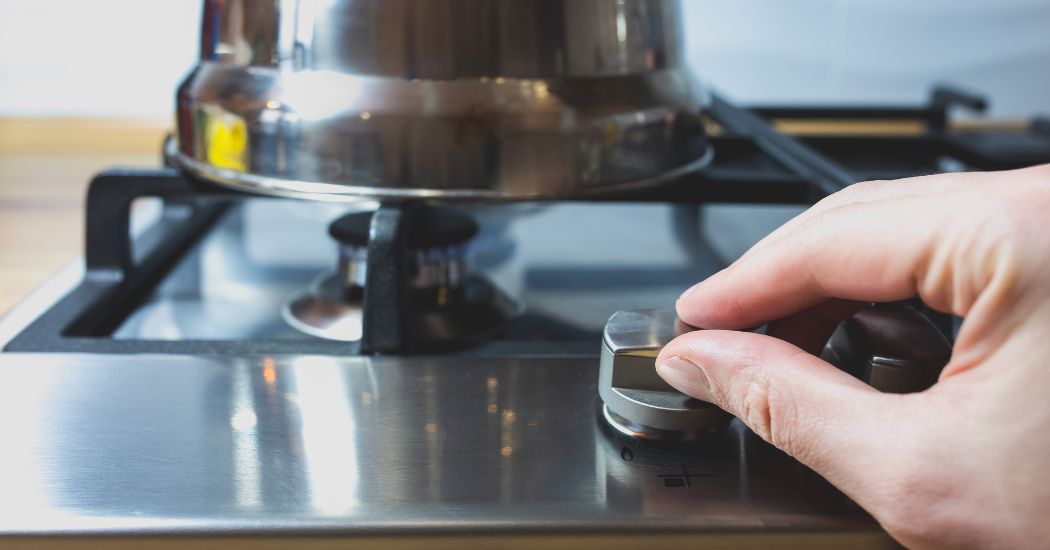Do All Gas Stoves Require Electricity? Get the Facts Here!
- 27 Dec 2022 02:01
- 1792

Gas stoves have been a popular option for many houses. Not only are they efficient and cost-effective, but they also offer a great range of temperature control to suit various cooking styles.
In this blog post, we'll cover all the details surrounding the electricity needs of gas stoves and answer the question, "do all gas stoves require electricity?".
Do All Gas Stoves Require Electricity?
The short answer is No. Not all gas stoves require electricity. This typically depends on the type of gas stove you have.
Electricity is unnecessary if you have a traditional gas stove with a standing pilot light. This gas stove uses a small, constantly burning flame to ignite the burner.
On the other hand, electricity is necessary if you have an electronic ignition stove, which uses an electric spark to light the burner. A power cut could mean you can only use your gas stove once the electricity restored.
It is essential to be aware of the type of gas stove you have, as this will affect the use and safety of your appliance.
Can You Use a Gas Stove During a Power Outage?
With some caveats, it is possible to use a gas stove during a power outage.
People can operate gas stoves manually during a power outage, but they must be lit with a match or lighter, as electric ignition will not be functional.
It is essential to use caution when lighting a gas stove in this manner, as this action is potentially hazardous.
Additionally, gas stoves typically require ventilation to function correctly, so it is vital to ensure that the space is well-ventilated while the furnace is in use.
You should immediately consume food cooked on the gas stove during a power outage, as perishable items may spoil due to a lack of refrigeration.

Tips and Tricks to Change from Electric to Gas or Vice Versa
Switching from an electric to a gas stove, or vice versa, can be daunting. Fortunately, a few tips and tricks can help make the process easier.
First, it's essential to understand the differences between electric and gas heating systems. Electric heating systems use electricity to power a furnace, while gas systems require a gas line to be connected to a gas furnace or boiler.
When switching from electric to gas, it's essential to understand the local regulations and laws about installing the new system.
Many jurisdictions require permits and inspections before installation, so being familiar with the local rules and codes is vital.

FAQs
Are there any stoves that don't require electricity?
Yes, many types of stoves don't require electricity. Some examples of these are wood-burning stoves, gas stoves, as well as propane stoves.
Wood-burning stoves are the oldest type of stove typically used for heating and cooking. They are efficient and can provide a steady heat source.
Gas stoves use natural gas or propane to create heat and are often the most cost-effective option.
Propane stoves are similar to gas stoves but use propane tanks to provide fuel. They are often more convenient than wood-burning stoves, as they can be set up anywhere with a propane tank.
What if the power goes out while the gas oven is on?
If the power suddenly goes out while your gas oven is on, knowing how to remain safe is essential.
First, do not open the oven door, as this may cause the gas to leak out and potentially cause a hazardous situation.
If you can, immediately turn off the gas supply valve to the oven, which you should put near the appliance.

Then, call your local gas company to report the outage and check if the problem is due to a gas supply issue.
In the meantime, ventilate the kitchen by opening windows and doors to allow fresh air in. It is also a good idea to leave the kitchen until the power and gas have been restored.
Taking these precautions can help avoid any potential risks of electric shock.
What appliances do not use electricity?
Non-electric appliances are becoming increasingly popular as they offer a low-maintenance, cost-effective alternative to electric devices.
Examples of appliances that do not use electricity include wood-burning stoves and gas-powered and solar-powered appliances.
How can I cook at home without electricity?
Cooking without electricity can be challenging, but a few methods can help you get creative in the kitchen.
For starters, you can use a solar oven. Solar ovens are great for baking, roasting, and slow-cooking and are easy to build using simple materials and essential tools.
Additionally, you can use a camping stove. These are small, portable, and powered by propane tanks. To whip up some quick meals, you can also try a campfire.
Whether making a stew, grilling kebabs, or baking a cake, campfires can provide the heat you need to do the job.
Does electricity power a gas stove?
The answer to this question is yes, but there are other options than this one.
Gas stoves powered by electricity are more commonly called electric cooktops and provide heat through electric coils.
They operate differently than traditional gas stoves, which use open flame or gas burners to heat the cookware.
Although electric cooktops can provide consistent and even heat, they can be more challenging to clean, require specialized cookware, and take a bit longer to heat up than a traditional gas stove.
Ultimately, the decision on which type of stove to use comes down to personal preference and the style of cooking that you will do.
The Bottom Line
While some gas stoves may require electricity to operate, others may not, depending on the type of stove and its features.
It is vital to research and understand each stove's specific requirements before using it. This will ensure that the stove is both safe and efficient to use.
Thank you for reading the post "Do all gas stoves require electricity?"!
